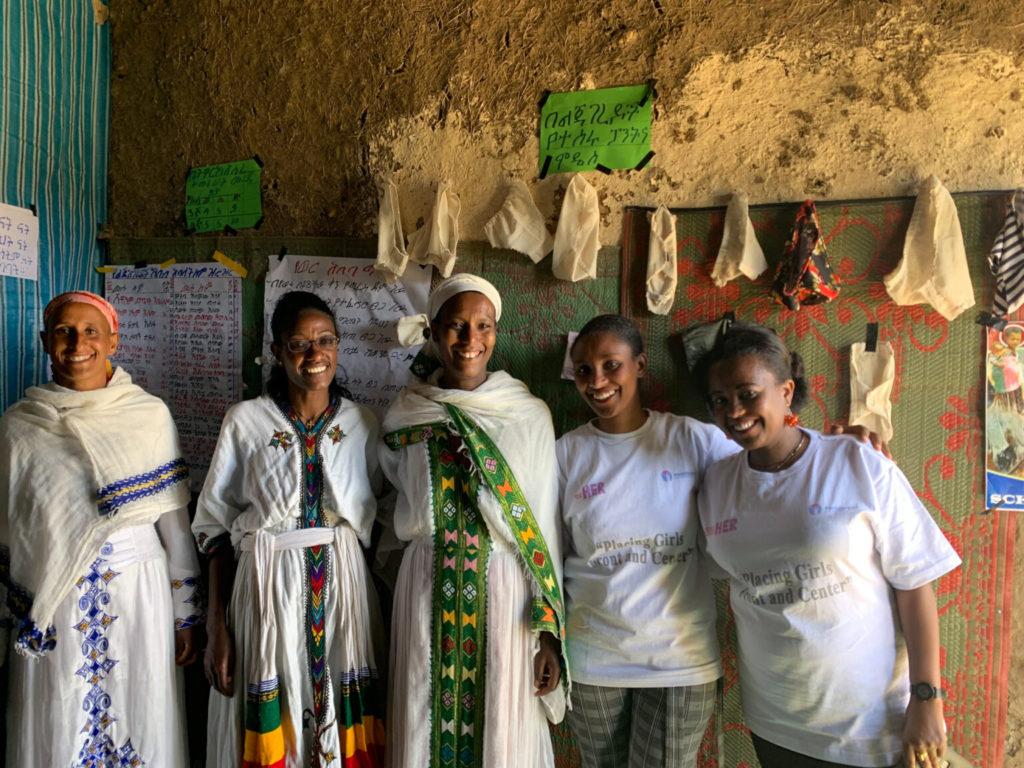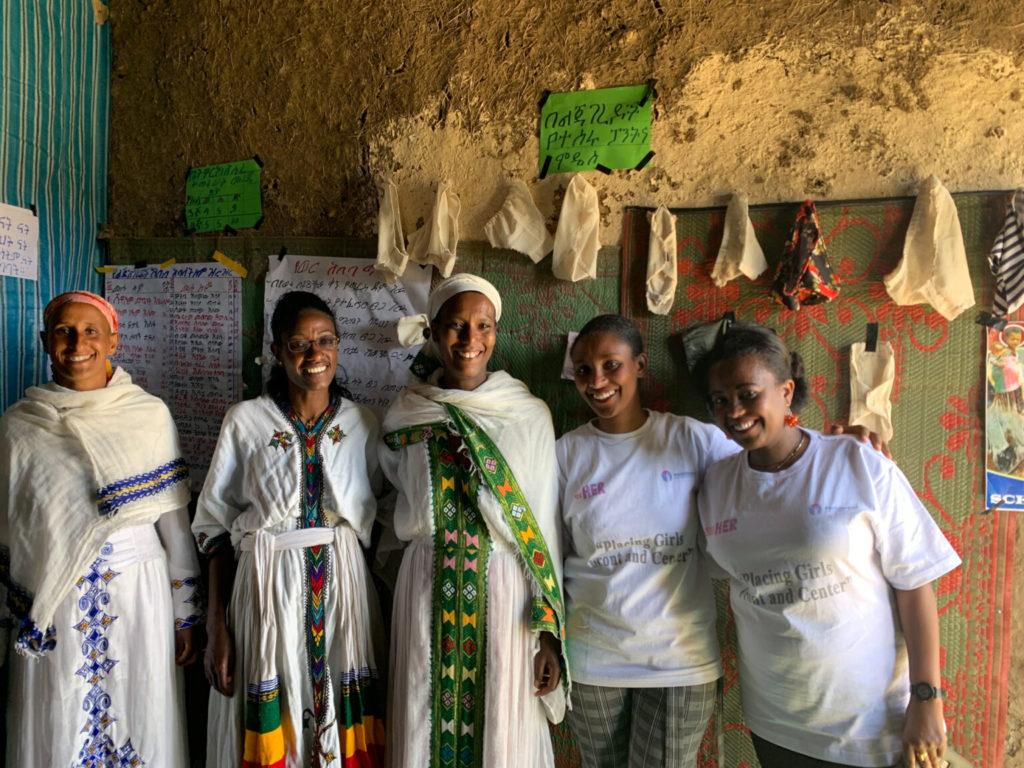
Girls in Ethiopia often reach puberty without receiving adequate, accurate, or timely information on menstruation, including how to maintain menstrual health and its links to pregnancy. Many girls experience stigma, shame, school absenteeism, and unintended pregnancy due to this lack of knowledge. While attention to menstrual health and hygiene (MHH) has grown across several sectors in recent years, it is not yet adequately recognized and addressed as both a barrier to and potential enabler of contraceptive use among adolescents and youth. Learning about menstruation during very early adolescence is critical for correctly understanding fertility and conception, and later making informed decisions about pregnancy and family planning.
Act With Her (AWH) is a five-year programme in Ethiopia, led by Pathfinder International in partnership with CARE International and the Government of Ethiopia, with funding from the Bill & Melinda Gates Foundation. It aims to forge health, education, economic, and social pathways that adolescent girls [10–19 years] need to thrive into young adulthood. The programme engages young adolescent girls, boys, and their caregivers in group sessions over 10 months. The long-term goal of the programme is better contraception outcomes for youth by enhancing adolescent girl’s agency. MHH establishment in schools is used as an entry point for adolescent girls on matters of sexuality and reproductive health decisions.
Pathfinder implemented the MHH component of AWH in two regions of Ethiopia – six woredas (districts) in South Gondar, Amhara, and four woredas in the previous Southern Nations Nationalities and Peoples (SNNP) region. AWH supported 52105 young adolescents (29883 girls and 22222 boys) aged 10–14 years and their caregivers with one group session per week over 10 months for a total of 40 sessions, including multiple modules on menstruation (biological facts, relationship to conception) and related issues (reducing stigma, making reusable pads). Furthermore, 640 health extension workers and education staff from 128 schools in Amhara and SNNP underwent a menstrual health management (MHM) training developed by Pathfinder, the government, and UNICEF. The goal is for schools to become “MHM Model Schools”, fulfilling minimum site requirements, including gender-separate toilets, washing and waste disposal stations, educational materials, and achieving a reduction in the number of girls dropping out due to menstruation. Project staff analyzed DHIS2 programme data from 2019–2023 and qualitative feedback collected from a range of participants (adolescents, caregivers, communities, and school stakeholders) was analyzed to identify both quantitative outputs as well as trends and themes on effectiveness.
According to AWH project data, over 85% girls who attended weekly sessions were interested in learning about and improving their current and future menstrual health. Girls reported feeling happy after learning how to make reusable pads and how to better manage their periods (including while at school) and felt less ashamed. Even in the most culturally conservative areas, as the topic was also included in boys’, caregivers’, and community-wide activities, data revealed an unexpected level of interest in open dialogue and calls for change among boys, fathers, male school directors and teachers, health workers, and community and religious leaders. A common theme among boys who participated was a strong appreciation for understanding its biological purpose and the menstruation experience of their sisters and mothers.
After undergoing the MHM training, 484 health extension workers and school staff proactively raised funds to make the changes necessary to meet the minimum standards in their schools and to better support menstruating girls. Ninety percent (115/128) of supported schools established a dedicated MHM room, often by re-purposing an existing space. School staff also raised their own funds for purchasing basic materials and equipping sanitary and hygienic stations. From October 2020–March 2023, over 31263 girls used the rooms for pad changing, washing, resting, and receiving counselling. Substandard water infrastructure remains a complicated challenge for most of the school sites and is difficult to address within health and wellness initiatives alone.
Menstrual health education is not a high-cost activity and supports informed decision-making about individual sexual and reproductive health through older adolescence and into young adulthood. Boys, households, and communities can all effectively be inspired to reduce stigma and decrease ‘period poverty’ for girls and young women. Fathers and religious leaders proved to be responsive to awareness-raising about the fact that menarche does not signal a girls’ readiness for marriage. School staff engaged by AWH were some of the most passionate and effective change agents, proactively making changes to better support their menstruating students.

Pathfinder Act With Her staff, school staff, and health extension workers stand in the entryway to the new menstrual health management building of the Yewiha Midir Primary School.